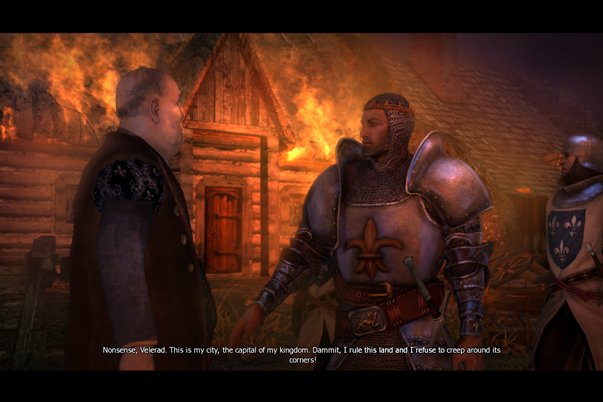The Witcher - hands-on
Find out how The Witcher's timing-based combat feels and why your choices matter more than ever
We were shown an example of how one simple decision early on in the game can have a long-lasting impact on the world of The Witcher. It started with a simple quest to protect a pile of goods along a riverbank from ravenous monsters. Once you've warded off the beasts, a band of travelers arrive and lay claim to the goods.
You could let them take what they came for. After all, you were hired to fight were monsters, not men. On the other hand, you could also defend the goods and slay the strangers.

No matter which choice you make, the immediate results will be the same, and you'll collect your reward for shielding the goods from the aggressive monsters per your contract. But if you choose to kill the strangers as well, the merchant who hired you will get nervous. He'll notify the kingdom guards and their investigation will reveal that the strangers were part of a terrorist/freedom fighting party. The investigation will lead to the arrest of a key NPC who might have given you a ton of quests had you simply decided to mind your own business.
All this knowledge is gleaned in retrospect, nearly ten hours after your seemingly innocuous choice on the riverbank. Whether or not you made the right or wrong move earlier is besides the point. By shrouding the consequences of each decision you'll make over the course of the game, and creating an elaborate web of actions and reactions, CD Projekt hopes to bypass the tendency to "test the designer's vision" and have you playing that role, steering yourself to one of the game's multiple endings.
Sign up to the GamesRadar+ Newsletter
Weekly digests, tales from the communities you love, and more



